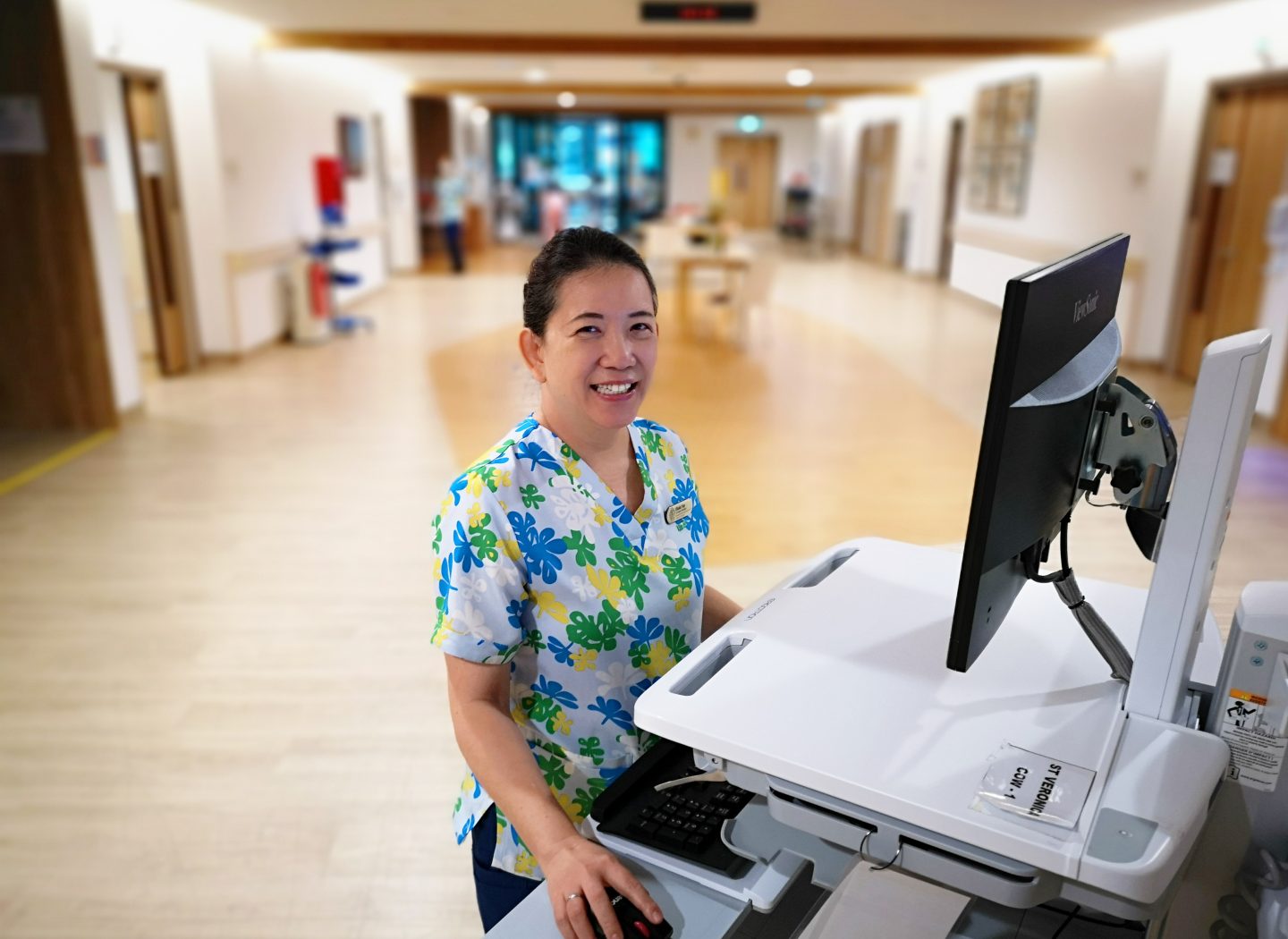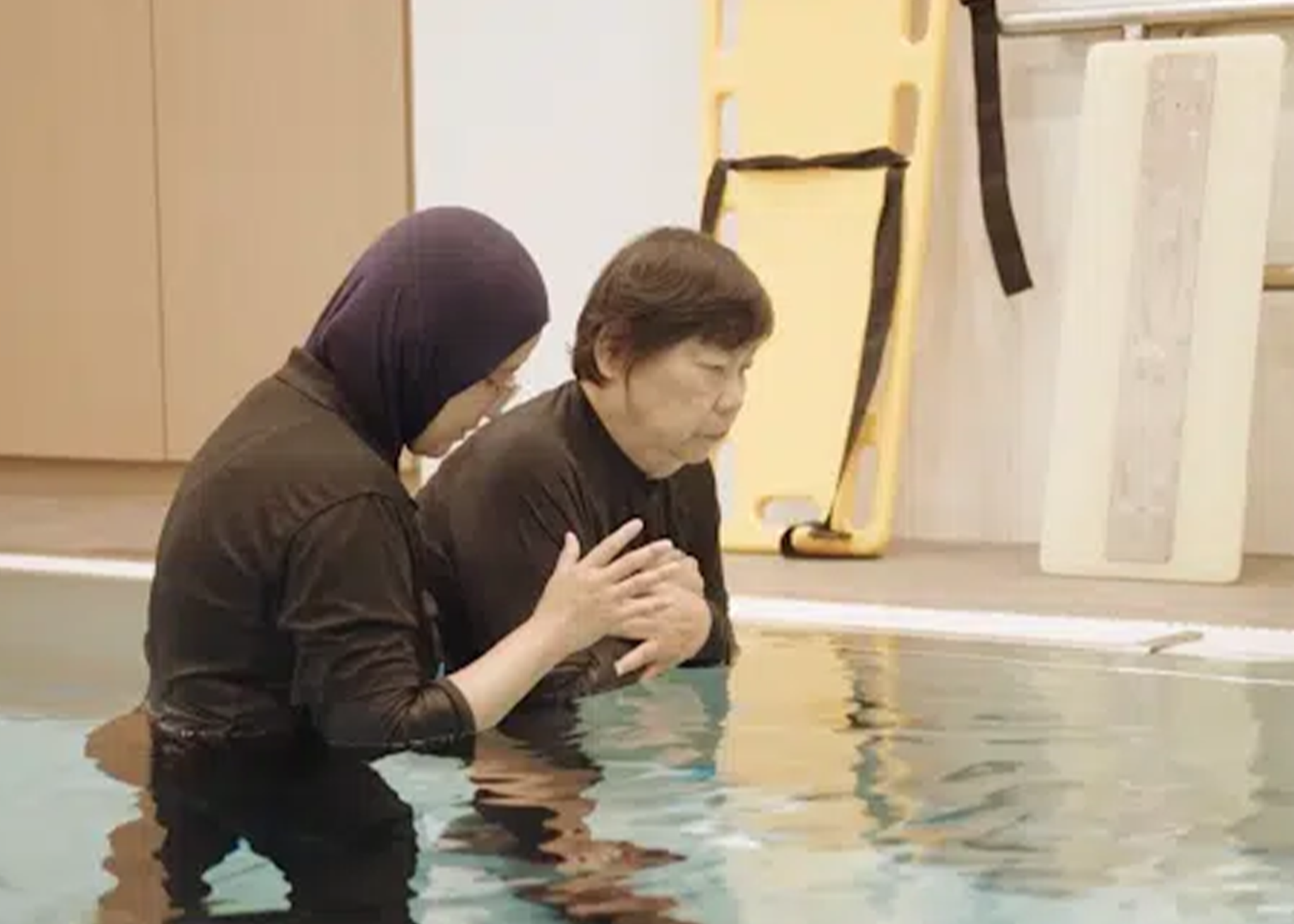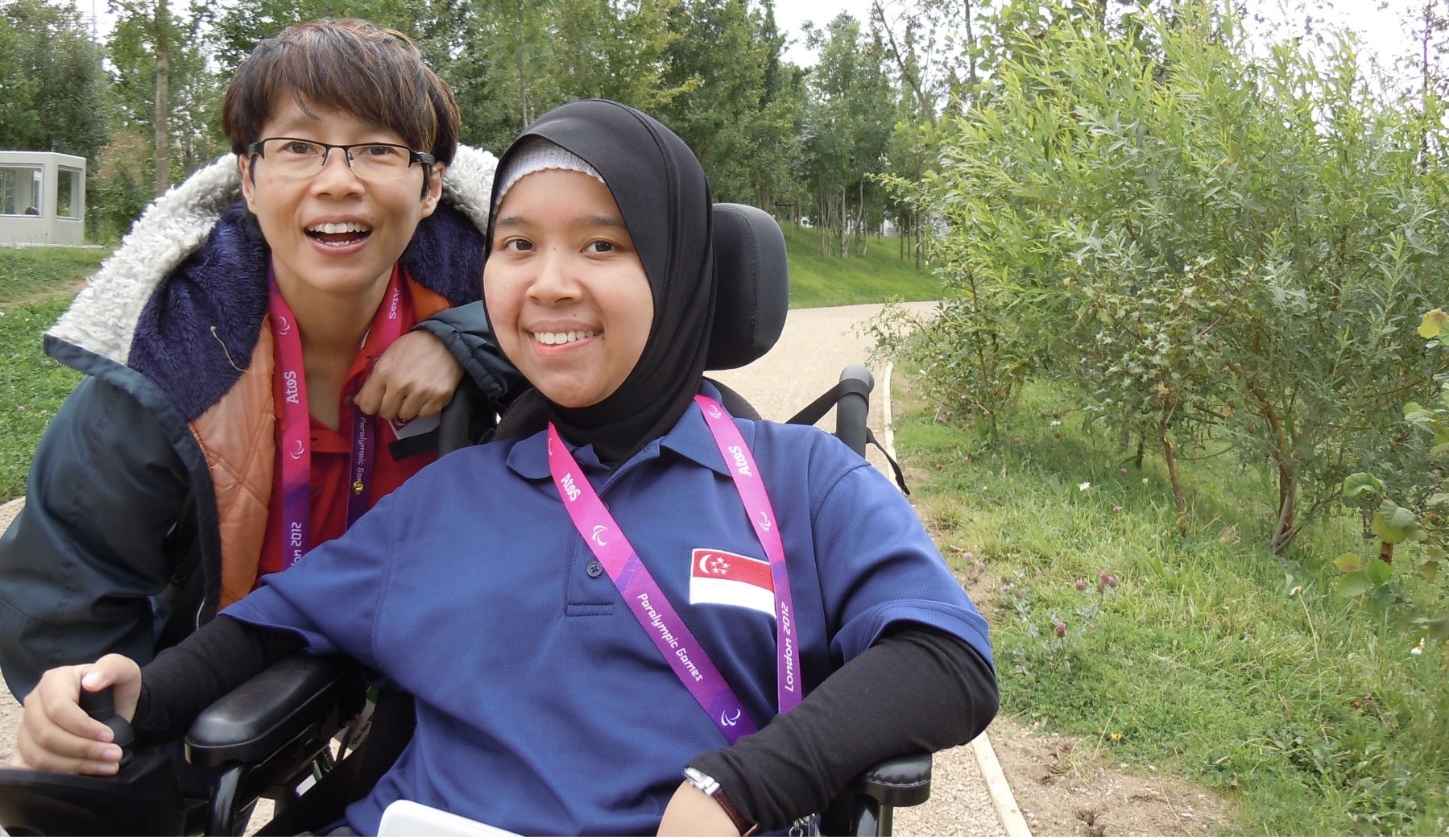Called to nurse the terminally ill through “trying times” brought on by Covid
This series of interviews commemorates Singapore Nurses' Day today, August 1. Salt&Light salutes all nurses for their dedication and care!
Anna Cheang & Tan Huey Ying // August 1, 2020, 5:02 pm

Facing death never gets any easier, said Sister Eliada Yap, senior nurse manager at Assisi Hospice, who has 32 years of experience in nursing with over 20 years in palliative care. But the Holy Spirit prompts her to help patients leave this earth with no regrets. Photo courtesy of Eliada Yap/Assisi Hospice.
Before 2020’s Covid crisis, the last time healthcare workers were in the national spotlight was in 2003 during the SARS epidemic.
Amongst the 33 deaths in Singapore were three healthcare workers, including nurse Hamidah Ismail. She died on Mother’s Day, leaving behind her husband and three young children.
A total of 97 healthcare workers, 41% of all cases, were struck down by Severe Acute Respiratory Syndrome (SARS).
Nurse Amy Lim, now 53 and a nurse manager at HCA Hospice Care, was one of them. Six months earlier, she had just given birth to her youngest child, a baby boy.
She recovered. And fast forward 17 years – Lim is on the frontlines once more.
24-hour shifts
This time, Lim is part of the hospice’s internal Covid task force, setting up guidelines according to government directives and making changes whenever new regulations emerged.
This involved the rolling out of video consultations in place of face-to-face home visits where possible.
“God’s grace sustained me through these night calls, even as I turned to Him for wisdom on how to pace my energy.”
Due to the nature of the charity which provides home hospice care to terminally-ill patients, however, a significant number of physical visits still had to be carried out for clients with unstable conditions.
Home visits were especially tricky during Circuit Breaker. Nurses had to don personal protective equipment (PPE) before entering patients’ homes. And lunch breaks were harried affairs at void decks between visits.
Walking around the community in full PPE was “intimidating” and the HCA nurses were often stopped by over-zealous safe distancing ambassadors during their lunch breaks, said Lim.
Shorthanded due to the safety concerns of colleagues who had elderly or young family members in their home, Lim decided to step in to fill in the manpower gap.
Together with HCA’s nursing director, Lim worked regular hours from 8:30am to 6pm, before going on standby throughout the night, ready to make home visits to patients when necessary.
For more than three months, these 24-hour shifts became the norm for Lim.
“God’s grace sustained me through these night calls, even as I turned to Him for wisdom on how to pace my energy through this period,” said Lim, who described these past few months as a “trying time”.
Dangerously ill
Over the past months, visiting policies in hospitals and hospices across Singapore were tightened drastically. But, in the field of palliative care, extra compassion was accorded to terminally-ill patients.
Lim shared about an elderly home-care hospice patient who was slated to be in isolation as a precaution.
“His son was very angry,” Lim recalled. The patient was in his last days and isolation did not sit well with his close-knit family.
“Palliative care really brings me back to the basics – not just of nursing, but humanity.”
Lim remained in close contact with both the hospital and the family every single day, even during the weekend.
Then God opened a door for them, said Lim. The patient was put on “DIL” status.
DIL, or “Dangerously Ill List”, is a medically-verified status where the patient’s death is deemed imminent. Patients on this list are often accorded more leeway – such as extended visiting hours for designated caregivers or being able to have visitors like family and close relatives.

“God’s grace sustained me through these night calls,” says nurse Amy Lim (right) from HCA Hospice. Alongside her nurse director, Nurse Amy has been anchoring the organisation’s on-call duties since the start of Circuit Breaker because of the Covid risk. Photo courtesy of Amy Lim/HCA Hospice.
Being put on DIL status and the patient’s four negative swab tests meant relaxed regulations and his family was allowed to be with him and hold his hand when he passed on – less than two weeks after his admission into hospital.
This brought Lim some comfort, amidst her exhaustion, even as it highlighted the devastation that Covid-19 has wrought within families of palliative patients.
No regrets
Facing death never gets any easier, said Sister Eliada Yap, senior nurse manager at Assisi Hospice, who has 32 years of experience in nursing with over 20 years in palliative care. “But there are times that it gets very difficult – especially when I identify with the patient or their family.”
Yap shared about Mei*, a 34-year-old Malaysian with cancer that had spread from her breast and then to her lungs and liver. She was delirious and in severe pain. Her husband, Loke*, was her only caregiver and, as his wife’s condition worsened, he soon found himself unable to cope.
“Loke looked very fatigued – they had no other family in Singapore,” Yap said.
Mei did not have much time left. Yap learnt from Mei, in her short windows of alertness, that she desperately wanted to go back to Ipoh one last time to see her mother and three sisters with whom she was very close.
From personal experience, Yap knew that this would be a complicated process – infinitely more difficult under lockdown.
“We had to prepare him for his wife’s death. He was so overwhelmed.”
There was information to be gathered, options laid out, and trade-offs considered – things that Loke would struggle to with, being alone and exhausted.
Yap, who is from Malaysia as well, empathised with Loke’s desire to fulfil his wife’s last wishes to see her family again before she died.
“My father had the same request,” said Yap, who had been in a similar situation years ago. In the ambulance, her father had asked repeatedly: “Are we there yet?”
Eventually, he passed on, surrounded by his family at home. Almost an understatement, Yap said: “He was very happy.
“But because of this, I felt that I needed to prepare Loke. He was already so overwhelmed.”
Assuming Mei was cleared for the journey home, there were many other considerations: What if she passed away en route – would Malaysian Immigration allow her body into the country? Was it worth the risk? What if she made it to the hospital but died while her husband was in quarantine – could he live with that?
The night before Mei passed, she felt the Holy Spirit prompt her to write a checklist for Mei’s husband.
Yap feels that regret is a pertinent topic that must be addressed with patients and their families.
As nurses, we may not be able to meet all the desires of our patients, but we can lay out the options for an informed decision, she said. “We can help them come to terms with the options – then they can make a good decision without the many ‘what-ifs’.
“The patient dies and will not be around, but the people who are alive … it will be very tough if they have to live with regret.”
Loke eventually decided that it was best to stay. “We had to prepare him for her death,” said Yap. This was Loke’s first encounter with the death of a loved one.
Yap recalled that, the night before Mei passed, she felt the Holy Spirit prompt her to write down a list of instructions as a checklist for Loke. “I have to be very sensitive to His leading so that I can help the person at that moment,” she emphasised.
She sent Loke home to get two sets of clothes for Mei, a pair of shoes, her wig and their identification documents for the undertaker and the police report that would have to be made.
When he returned to the hospice, Mei was in her last moments. He held the phone for over two hours as her family in Malaysia stayed on the line with her until she had stopped breathing.
Light of the Gospel
“I attend more funerals than anything else in my life,” said Lim. “It makes you question what life is all about, what it means to be a Christian.
“Palliative care really brings me back to the basics – not just of nursing, but humanity.”
Knowledge and skill are important, but the service must come from the heart, guarded by good ethics, said Lim. The core of these ethics is a respect for the person’s identity and autonomy, justice and the promise to do no harm.
“The light of nursing sits on these ethics, and while I practise these, I hope I can bring the light of the Gospel.”
* Patients’ names have been changed for confidentiality.
This is the final story in a series of interviews with palliative nurses to commemorate Singapore Nurses’ Day today. Read the other stories below.
“Less of me and more of You”: A nurse’s journey from aesthetic medicine to end-of-life care
Palliative care nurses: Bedside angels to the dying and their families
On the frontlines and far from home: Two foreign nurses draw comfort from giving comfort
We are an independent, non-profit organisation that relies on the generosity of our readers, such as yourself, to continue serving the kingdom. Every dollar donated goes directly back into our editorial coverage.
Would you consider partnering with us in our kingdom work by supporting us financially, either as a one-off donation, or a recurring pledge?
Support Salt&Light



